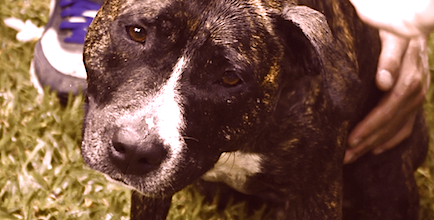Can Dogs Eat Pineapple? Everything You Need To Know.
Key Points: Pineapple, the tropical delight known for its sweet and tangy flavor, often finds its way into our favorite cocktails and fruit salads. But what about our four-legged friends? Can dogs savor the taste of this exotic fruit safely? Let’s delve into the nutritional pros and cons of pineapples for dogs. So can dogs…

- Yes, pineapple can be a tasty, nutritious treat for your dog when given in moderation.
- Packed with Vitamin C, manganese, and fiber, pineapples support immunity, digestion, and bone health.
- Be sure to skip the skin, core, and leaves—these parts are tough to digest and can pose a choking hazard.
Pineapple, the tropical delight known for its sweet and tangy flavor, often finds its way into our favorite cocktails and fruit salads. But what about our four-legged friends? Can dogs savor the taste of this exotic fruit safely? Let’s delve into the nutritional pros and cons of pineapples for dogs.
So can dogs eat pineapple: Yes, pineapples are generally safe for dogs in moderation, but there are essential considerations to ensure your pup enjoys them without any adverse effects. We’ll provide you with insights on serving size, preparation, and what to watch out for when introducing pineapples to your dog’s diet.
- Unpacking the Nutritional Treasure of Pineapples
- The Potential Benefits of Pineapples for Dogs
- Safety Considerations
- Which Dogs Should Avoid Pineapples?
- Pineapple Allergies: A Rare Occurrence
- So, Can Dogs Eat Pineapple?
- How Much Pineapple is Appropriate?
- Can My Dog Have Pineapple Every Day?
- What If My Dog Has Eaten A Lot of Pineapple?
- Should You Wash Pineapples Before Feeding Them to Dogs?
- Great Ways to Serve Pineapples to Your Dog
- Frequently Asked Questions (FAQ)

Don’t leave your pet’s safety to chance
Sign up for Petful recall alerts today.

Unpacking the Nutritional Treasure of Pineapples
Before we dig into the delightful world of pineapples for dogs, let’s break down the canine-friendly nutritional profile of this tropical fruit:
Vitamin C (Ascorbic Acid)
- A Natural Antioxidant: Pineapples are a rich source of Vitamin C, a potent antioxidant that can help protect your dog’s cells from the damaging effects of free radicals.
- Immune System Support: Vitamin C contributes to a healthy immune system, potentially helping your dog ward off illnesses.
- Collagen Formation: It plays a crucial role in collagen production, which is essential for skin, cartilage, tendons, ligaments, and bone health.
Manganese
- Bone Health: Manganese, found in pineapples, is vital for bone development and overall skeletal health in dogs.
Dietary Fiber
- Digestive Health: The fiber in pineapples can promote regular bowel movements, potentially aiding dogs with mild constipation or diarrhea.
- Weight Management: Dietary fiber can create a sense of fullness, assisting in weight management by reducing overall food consumption.
- Blood Sugar Regulation: Certain fibers can help slow sugar absorption, which can benefit diabetic dogs.
Bromelain
- Natural Enzyme: Pineapples contain an enzyme called bromelain, which may have anti-inflammatory properties and can aid in digestion. However, some dogs may be sensitive to it, so proceed with caution.
The Potential Benefits of Pineapples for Dogs
Now, let’s explore the potential advantages of incorporating pineapples into your dog’s diet:
- Digestive Well-being: Pineapple’s dietary fiber can support digestive health, making it a valuable choice for dogs with mild digestive issues.
- Vitamins and Minerals: Pineapples offer a source of vitamins and minerals that can contribute to your dog’s overall health.
Safety Considerations
While pineapples offer several benefits, responsible pet parenting requires some precautions:
- Moderation: Like any treat or human food, pineapples should be given in moderation and should not replace your dog’s regular meals.
- Natural Sugar Content: Pineapples contain natural sugars, so monitor your dog’s sugar intake to prevent weight gain and dental problems, especially for diabetic dogs.
- Bromelain Sensitivity: Some dogs may be sensitive to bromelain, which can lead to digestive upset. If your dog experiences diarrhea or stomach discomfort after consuming pineapples, consult your veterinarian.
- Avoid the Core: The core of the pineapple can be tough and difficult for dogs to chew and digest. Always remove it before giving pineapple to your dog.
- Canned vs. Fresh: Fresh pineapple is the best choice. Canned pineapple, especially those in heavy syrup, can contain added sugars that aren’t ideal for dogs. Always choose unsweetened varieties if you’re considering canned pineapple.
- Avoid the Skin: Pineapple skin can be tough and may pose a choking hazard or digestive obstruction. Always peel the pineapple and offer only the soft, inner flesh.
Which Dogs Should Avoid Pineapples?
While pineapples are generally safe, some dogs should exercise caution when it comes to this tropical treat:
- Dogs with Allergies or Food Sensitivities: Just like humans, dogs can be allergic or sensitive to various foods, including pineapples. Watch out for symptoms like skin reactions (redness, itching, or hives), gastrointestinal upset (diarrhea, vomiting, or excessive gas), or respiratory issues (coughing, sneezing, or wheezing). Consult your vet if you suspect an allergy.
- Dogs with Diabetes or Blood Sugar Issues: Due to their natural sugar content, pineapples should be consumed in moderation by dogs with diabetes or those who struggle with blood sugar regulation. Consult your vet for guidance tailored to your dog’s specific health condition.
- Dogs with Pancreatitis: While pineapples are generally low in fat and protein, dogs prone to pancreatitis may be sensitive to dietary changes. Always introduce new foods slowly and under veterinary guidance.
- Dogs with a History of Urinary Tract Stones: Some fruits and vegetables can influence urine acidity. If your dog has a history of certain urinary tract stones, consult your veterinarian before adding pineapples to their diet.
- Dogs with a Sensitive Stomach: Some dogs may experience digestive upset, including diarrhea or vomiting, when introduced to new foods. If your dog has a sensitive stomach, introduce pineapples gradually and in small amounts.
Pineapple Allergies: A Rare Occurrence
While pineapple allergies in dogs are rare, they can still occur. Keep an eye out for symptoms such as skin irritations (itching, redness, or inflammation), digestive upset (mild stomach discomfort, vomiting, or diarrhea), respiratory symptoms (sneezing, coughing, or nasal discharge), swelling (especially in the lips, eyes, or ears), or, in severe cases, anaphylactic shock. Seek immediate veterinary care if your dog exhibits signs of a severe allergic reaction.
So, Can Dogs Eat Pineapple?
Pineapples can be a delightful and nutritious treat for dogs when given in moderation and properly prepared. However, individual dogs may react differently, so it’s essential to monitor their response. When introducing any new food to your dog’s diet, consult with your veterinarian for guidance tailored to your dog’s specific health condition. By offering pineapples in a safe and responsible manner, you can provide your canine companion with a tasty tropical experience.
How Much Pineapple is Appropriate?
The suitable amount of pineapple for your dog depends on their size, overall health, and dietary requirements:
- Small Dogs (up to 10 lbs or 4.5 kg):
- Amount: 1 slice about 1-inch in diameter and 0.5-inch thick.
- Equivalent: Approximately 1/8 cup.
- Medium-sized Dogs (10-30 lbs or 4.5-13.6 kg):
- Amount: 1 slice about 2-inches in diameter and 0.5-inch thick.
- Equivalent: Approximately 1/4 cup.
- Large Dogs (30-70 lbs or 13.6-31.8 kg):
- Amount: 1 slice about 3-inches in diameter and 0.5-inch thick.
- Equivalent: Approximately 1/3 cup.
- Extra Large Dogs (70 lbs or 31.8 kg and above):
- Amount: 1 to 2 slices, each about 3-4 inches in diameter and 0.5-inch thick.
- Equivalent: Approximately 1/2 to 2/3 cup.
To prevent choking hazards, ensure the pineapple pieces are appropriate for your dog’s size. If your dog tends to gulp down treats without chewing, consider cutting the pineapple into smaller, bite-sized pieces.
Can My Dog Have Pineapple Every Day?
While pineapple is safe for dogs in moderation, it’s best to offer it as an occasional treat rather than a daily snack. This ensures that your dog enjoys the benefits of the fruit without the potential drawbacks. While some fruits and vegetables are safe for everyday addition to a dog’s diet, here is why you shouldn’t feed your dog pineapple every day:
- Natural Sugars: Pineapple is rich in natural sugars. While these sugars are not harmful in small amounts, daily consumption can lead to weight gain or digestive issues, such as diarrhea, in some dogs.
- Digestive Concerns: Even though pineapples contain bromelain, an enzyme that aids in digestion, too much pineapple can upset a dog’s stomach. Feeding pineapple every day could lead to an imbalance in your dog’s digestive system, causing loose stools or tummy discomfort.
- Balanced Diet: A dog’s primary diet should consist of nutritionally balanced dog food that meets all of their dietary requirements. Treats, including fruits like pineapple, should make up no more than 10% of their daily caloric intake.
- Variety is Key: Just like humans, dogs can benefit from a variety of foods in their diet. Instead of feeding pineapple daily, consider rotating between different dog-safe fruits and vegetables. This way, your pup gets a diverse range of nutrients and flavors, making snack time more exciting!
What If My Dog Has Eaten A Lot of Pineapple?
Dogs are curious eaters, and it’s not uncommon for them to indulge in pineapple if given the chance. If your dog snuck into the fruit salad and has consumed a substantial amount of pineapple, here’s what to look out for:
Potential Side Effects
- Gastrointestinal Upset: Overeating pineapple can result in diarrhea, vomiting, or stomach cramps in some dogs.
- Increased Sugar Intake: While the natural sugar content in pineapples is not harmful in moderation, excessive consumption can lead to a temporary spike in blood sugar.
Immediate Steps
- Observe your dog closely for any signs of discomfort, vomiting, diarrhea, or unusual behavior.
- Provide access to clean water to help flush out the natural sugars and prevent dehydration, especially if your dog experiences diarrhea or vomiting.
- Consider offering a smaller meal for your dog’s next feeding or delaying their meal to give their stomach time to settle.
Long-Term Monitoring
After the immediate aftermath, continue to monitor your dog’s behavior and bowel movements over the next 24 to 48 hours. If any of the following symptoms appear or worsen, consult your veterinarian:
- Prolonged diarrhea or vomiting.
- Lethargy or unusual tiredness.
- Loss of appetite.
- Abdominal pain or discomfort.
Should You Wash Pineapples Before Feeding Them to Dogs?
Yes, it’s essential to wash pineapples before offering them to your dog. This step helps remove potential residues of pesticides or harmful bacteria that may be present on the fruit’s surface. Prioritizing your dog’s health and safety means ensuring the pineapple they consume is as clean and safe as possible.
Great Ways to Serve Pineapples to Your Dog
If you’re eager to introduce pineapples into your dog’s diet in creative and engaging ways, here are some ideas:
- Fresh and Raw: The simplest way is often the best. Offer small, bite-sized pieces of fresh pineapple as a tasty and refreshing treat.
- Frozen Pineapple Treats: Freeze pineapple chunks for a cool, satisfying snack during hot weather.
- Pineapple Smoothie for Dogs: Blend fresh pineapple with other dog-friendly fruits like blueberries or bananas and a bit of plain yogurt to create a delicious and probiotic-rich smoothie. Serve in small quantities.
- Homemade Pineapple Dog Biscuits: Explore dog biscuit recipes that incorporate pineapples. These typically blend pineapples with dog-friendly ingredients like oat flour and are baked into biscuit form.
- Pineapple and Peanut Butter Mix: Dogs often love peanut butter. Mix some mashed pineapples with dog-safe, xylitol-free peanut butter for a flavorful paste. It can be used to stuff toys or offered as a lickable treat.
- Dehydrated Pineapples: If you have a food dehydrator, you can make pineapple chips. Dehydrating pineapples concentrates their sweetness and provides a chewy treat for your dog. Ensure the pieces are an appropriate size to prevent choking.
- Mixed with Regular Food: Add small pieces of fresh pineapple to your dog’s regular meal as a sweet topping. It can make mealtime more exciting for them.
Frequently Asked Questions (FAQ)
Can Dogs Eat Pineapple Skin or Core?
It’s best to avoid feeding your dog the tough and fibrous pineapple skin, as it can be difficult for them to digest and may pose a choking hazard. Additionally, the core of the pineapple can be tough and less palatable, so it’s advisable to remove it before offering pineapple to your dog. Stick to the fleshy part of the fruit, cut into appropriately sized pieces for your dog.
Can Dogs Eat Pineapple Leaves?
While the juicy flesh of a pineapple can be a tasty treat for dogs when given in moderation, the same cannot be said about its leaves. Here’s why pineapple leaves (often referred to as the crown) are not recommended for dogs:
• Tough and Sharp: Pineapple leaves are tough, spiky, and can be quite sharp. If ingested, they could cause physical harm to your dog’s mouth, throat, and digestive tract. They can also pose a choking hazard or lead to a blockage in the intestines.
• Digestive Issues: The fibrous nature of pineapple leaves makes them hard for dogs to digest. This could result in gastrointestinal discomfort, vomiting, or diarrhea.
• Chemical Residues: Like many other fruits, pineapples might be treated with pesticides or other chemicals during their growth. While the flesh is often washed and peeled, the leaves might retain some of these residues. Even if you thoroughly rinse them, it’s difficult to ensure all residues are removed.
• No Nutritional Benefit: Unlike the fruit itself, the leaves don’t offer any significant nutritional benefits for dogs. So, there’s no good reason to give them to your pet.
Can Dogs Eat Canned Pineapple?
Canned pineapple, if it’s in natural juice or water without added sugars or artificial sweeteners, can be safe for dogs in moderation. However, fresh pineapple is a healthier option due to its lower sugar content and absence of preservatives. If you choose to feed your dog canned pineapple, ensure it’s drained and rinsed to remove excess syrup or juice.
Can Dogs Drink Pineapple Juice?
While pineapple juice is generally safe for dogs in small amounts, it’s not the best way to offer pineapples to your furry friend. Pineapple juice lacks the fiber found in the whole fruit, and it’s more concentrated in sugar. Additionally, some store-bought pineapple juices may contain added sugars or preservatives that aren’t suitable for dogs. It’s always better to offer fresh pineapple or frozen pineapple chunks for a healthier and more enjoyable treat.
Curious about what other foods dogs can eat? Check out these related articles below:







